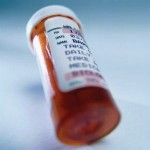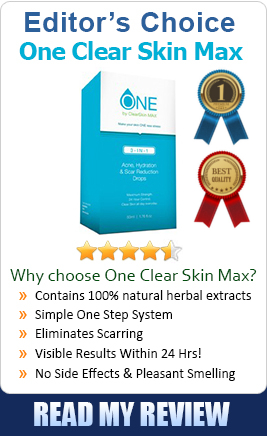What is Oral Isotretinoin?
Isotretinoin is an oral retinoid, meaning that it is in the vitamin A family of compounds. For this reason, many of the side effects that we see from isotretinoin are similar to the effects that we see from taking toxic doses of vitamin A. Isotretinoin is considered an appropriate treatment for people who have severe nodular acne or moderate or severe acne that has not responded to oral antibiotics and topical treatment.
Virtually all dermatologists also prescribe oral isotretinoin for moderate to severe acne that scars physically and psychologically, inflammatory acne that does not respond to conventional therapy, and chronic acne that keeps recurring after any given treatment.

Accutane
With the advent of oral isotretinoin (sold under the trade name of Accutane) and now also as generics (known as Sotret or Amnesty), severe, scarring acne that often left a lifetime of physical and psychological scars became much less frequently observed occurrence.
Because of the potential for very serious side effects, however, this treatment is not without its perils and is not for everyone. There have been congressional hearings on the drug, and there has been a concerted effort on the part of families whose children have committed suicide while on Accutane and groups that focus on birth defects to try to get this medication off the market.
Roche, which was the original manufacturer of Accutane, along with dermatologists convinced of the need for this very important drug to continue to be available for the treatment of acne, have agreed to specific guidelines and monitoring for patients on oral isotretinoin.
This effort has been successful and continues in the form of detailed written consents, written and video information, surveys, and other voluntary registration procedures. The program has been successful in increasing the awareness of the risks of oral isotretinoin while managing to keep it on the market for those who really need it.
Over the past 6 months, new guidelines have been recommended requiring all patients taking oral isotretinoin to be entered into a formal registry to better monitor those taking the medication.
Am I a good candidate for oral isotretinoin?
Oral isotretinoin is the first-line treatment for severe acne and may also be used in people who have failed conventional treatment, such as a combination of topical retinoids, BP, topical or systemic antibiotics, and when appropriate, hormonal therapies.
Consensus Recommendations for Oral Isotretinoin
- Severe nodulocystic acne/severe acne variants
- Inflammatory acne with scarring that has failed conventional treatment
- Moderate to severe acne with frequent relapsing
- Acne with severe psychological distress
Lily’s comments:
I have had acne for over 1 year. At first I just got the regular pimples and blackheads. I tried stuff from the drug store and then oral antibiotics from my doctor. My skin is pretty sensitive, so I use Retin-A every other day and a benzoyl peroxide wash at night.
This helped for a while, but now I get painful big bumps under my skin that leave craters when they finally go away. I get a few new ones every month. I also have a lot of regular pimples that make my face look horrible. The oral antibiotics don’t work anymore, and I can’t take the scarring.
I needed to do something major. I went to my doctor with my parents to talk about oral isotretinoin. The idea of taking a medicine that was so strong and seemed so dangerous was scary, but I really wanted my acne to get better.
We talked about the side effects and that the acne could still come back and that I might need to do the treatment again. My doctor gave me a booklet at the end of the visit. I took the booklet home and went over it with my parents.
We decided that because my acne was leaving really bad scars and my other treatments stopped working, I would go on the medicine.
How does isotretinoin work?
Oral isotretinoin is a retinoid preparation that decreases the size and secretion of the sebaceous glands. It normalizes the skin cells, especially those lining the pores. It prevents the formation of new comedones. It indirectly inhibits the growth of P.acnes by changing the environment in which the P.acnes usually lives, making it much less inviting. It also has an anti-inflammatory effect.
During oral isotretinoin therapy, sebum production is reduced by 90% or more. This leads to a substantial decrease in the levels of P.acnes; however, both P.acnes and sebum levels increase once the medication is discontinued.
This makes oral isotretinoin unique among all of the current oral acne treatments available in that it affects all of the underlying factors behind the process of acne. It makes it a highly effective but sometimes controversial treatment option.
Does oral isotretinoin cure acne?
Because acne is often a chronic condition of the skin that is influenced by both genetic and external factors, neither oral nor topical medications can technically cure the condition. Medications can, however, have a profound effect on how active the acne is and how much treatment it can require over time.
At least one third of people who have taken oral isotretinoin will have a relapse of their acne within the first three years after treatment. Because both sebum and P.acnes levels increase once oral isotretinoin treatment is complete, acne can recur in some people after an otherwise effective treatment course.
In most cases, oral antibiotics or a second treatment course with isotretinoin can be attempted after a 2-month rest period and, rarely, even a third course if necessary. However, in cases in which there is recurrence of the acne soon after a treatment course is completed, further evaluation may be helpful in trying to determine whether hormonal influences are a factor, which would then mean that other options should also be considered either instead of or in addition to oral isotretinoin treatment.
What dose of isotretinoin is right for me?
The usual dose varies depending on your weight and the severity of your acne. First, you need to determine how much you weigh in kilograms, as opposed to pounds. The dose can range from 0.1 to 2 mg/kg, with the most common dose being 0.8 mg/kg/day divided into two – morning and night. Oral isotretinoin is best absorbed and most effective when taken with food and when taken twice a day.
Your doctor may decide to start you on a lower dose for the first month or two so that you can acclimate to the side effects, to at least some extent, and then increase the dose for the rest of the 16 to 20 week course of therapy. In some cases, higher doses for longer than 20 weeks may be required for adequate results.
In some very severe cases of acne, oral prednisone, a corticosteroid, is also given for 2 to 6 weeks, usually before oral isotretinoin treatment is begun.
Before you start oral isotretinoin, you should have a detailed discussion with your doctor regarding any concerns that you may have about the treatment, and you should be sure to discuss any personal or family history of depression.
Your doctor will give you a booklet that the makers of oral isotretinoin provide for you to take home to review and discuss with your family. You will bring this booklet back with you on the next visit because both you and your doctor must sign and date several pages, some of which you will keep, some of which the doctor will keep, and a few of which will be sent to the manufacturer of the drug as part of a survey.
At this pre-oral isotretinoin visit, your doctor will also request baseline blood tests, which will be repeated monthly while you are taking the drug.
If you are a woman, your doctor will also review pregnancy and contraceptive issues with you and make sure that you are not pregnant at the start of treatment. It is important to understand that the risk of birth defects exists only while the retinoid is in the body; after the retinoid is cleared, typically 6 weeks after discontinuing therapy, there is no longer a risk.
A patient information form and video are available from the manufacturer to help with counseling regarding contraceptive and pregnancy issues.
How long is the usual course of oral isotretinoin?
The effect of oral isotretinoin, especially in severe nodulocystic acne, can be dramatic. Most cases of severe acne respond to a single 4 to 6 month treatment course. In general, pustules heal more quickly than papules or nodules.
Also, lesions on the face, upper arms, and legs tend to respond more quickly than lesions on the back or chest. In some cases, treatment is started at a low dose in order to help the skin get acclimated to the drug before increasing to a higher dose in the months that follow.
Laboratory Evaluations
Pretreatment evaluation
- Review of side effects
- Review of pregnancy/contraception (women)
- Review of informed consent booklet
Blood tests at pretreatment and weeks 4 and 8
- Baseline fasting cholesterol
- Triglyceride level
- Standard liver function test
- Pregnancy test (women only)
Monthly evaluation
- Review of side effects
- Review of birth control methods
- Physical exam to document improvement
- Answer questions, review results
Will I get worse before I get better? How long will it take before I see results?
In some cases, there can be a flare of the acne in the first month after starting Accutane. There are ways around this. Sometimes a short course of prednisone is given to minimize inflammation and to avoid the flare that would accompany it.
In most cases, however, we start at a lower dose and incrementally increase the dose over the first one to two months s the patient acclimates to the drug. In general, it takes approximately 1 to 2 months after starting treatment to really see results.
This means that there should be fewer or no new lesions, and that the lesions that do come up should be smaller and should resolve more quickly. Results tend to last for at least several months to years after stopping treatment.
What are the side effects of oral isotretinoin?
Oral isotretinoin has become a very controversial drug because of some of the side effects associated with it. There have been congressional hearings and several attempts to take this drug off the market.
Although some of the side effects can be tragic, close monitoring of patients taking this medication can avoid the worst of the potential adverse reactions. There is no other drug available at this time that can treat and often clear severe, scarring, disfiguring acne.
Many have even considered their isotretinoin treatment to be life saving. When there is appropriate counseling and monitoring, oral isotretinoin can really be a miracle cure for many with severe, scarring acne.
Lily’s comments:
When I first started taking the medicine, it took a while before I noticed anything. The first thing I felt was that my skin started to feel tight and dry, especially my lips. I was started on a lower dose so that I could adjust to the effects.
I didn’t really see a change in my acne right away, but at least it didn’t get worse. It was also a relief to stop all the other treatments I was using for a while. I was really sick of my routine, especially since it just wasn’t working anymore.
Taking one pill twice a day was easy. I was a little concerned about some of the side effects, especially that my hair could fall and the extreme dryness. I was also not crazy about the idea of having blood tests done every month. I really hate needles.
The second month of treatment was a little easier. I started to see the improvement, and I had a good routine going with my moisturizers. I was careful not to drink alcohol and to use sunscreen every day. I didn’t have any headaches or joint aches or hair loss, but I did seem to feel a little achier sometimes, especially if I had a really tough workout.
At every visit my doctor reviewed my blood tests and how I was doing. When I told a few of my friends that I was on Accutane, they all wanted to go on it right away to get rid of their acne too. I liked that they could see the improvement too.
I also found that one of my friends had to stop taking it because of a really bad reaction. My friend got very depressed and had to miss school for a while. That scared me a little, but I was feeling fine so I kept going. Actually, I felt even better than usual since my skin was starting to look so much better.
I had more confidence in myself, and I wanted to go out and be with people more. I didn’t feel like I had to hide my face like I did before. It isn’t that everything was perfect; my face was dry and I still had scars. It’s just that I finally had some hope that there might be an end to the acne.
Although the list of potential side effects and adverse reactions from Accutane or the new generic formulation is quite extensive and even overwhelming to many, the most common side effects include dry, chapped lips and dry eyes, dry skin, and dry mouth.

Dry chapped lips and mouth
Less commonly, there can also be secondary infection with a bacterium called S.aureus. This can be treated with topical or oral antibiotics as necessary. Some patients have noted muscle aches and backaches, and some have mild headaches at the start of therapy. Nosebleeds are fairly common, and skin fragility may also occur, especially on the hands.
Any patient with severe headaches, decreased night vision, or signs of adverse psychiatric events should immediately stop taking the drug and call his or her doctor. In addition, serum lipids are usually routinely monitored. This is done by a routine blood test that can be done either at your doctor’s office or at a local laboratory test site. Some schools and offices have the ability to do routine blood tests as well.
Oral isotretinoin is a potent teratogen, meaning that it is well known to cause birth defects in children whose mothers get pregnant while taking oral isotretinoin or within 1 month after stopping isotretinoin. For this reason, any woman who is of child-bearing potential who plans on taking this drug must have two negative pregnancy tests before starting treatment and for at least 1 month after therapy.
Watch the video on the side effects of Oral isotretinoin
and the protocol of taking this medication.
Adequate contraception is essential, and the importance of this cannot be overstated before and during treatment as well as for 4 weeks after discontinuing treatment. Therapy should start on the first, second, or third day of the menstrual period once the results of two negative pregnancy tests have been obtained.
It is important for both the person taking isotretinoin and for their family members to be educated regarding the potential for mood swings and depression during isotretinoin therapy. In most cases, psychosocial events associated with severe acne most often improve once the acne starts to clear; however, in some people with acne who have depression or a tendency toward depression, their psychological outlook does not improve with the acne treatment.
This may be due to several different reasons; however, oral isotretinoin should be discontinued in these cases, and treatment should be instituted for the depression as needed.
Some physicians definitely believe that oral isotretinoin does produce, very occasionally but unpredictably, significant mood changes, depression, and other significant psychiatric side effects. It is very important to discuss these issues with your doctor and to also let you doctor know whether you have been treated in the past for depression or suicide attempts, or whether you have a family history of depression.
Rarely, long-term oral retinoid therapy may be complicated by bone changes, including osteoporosis and other conditions. One study concluded that a loss of bone density occurred as a direct effect of retinoids on bone. Other reports indicate bone changes on oral isotretinoin, such as bone fractures or delayed healing.
These are changes that are more typically found in patients on higher doses of the drug than used for the typical acne patient or for those in whom high doses are used over longer periods of time than usual. There are some new formulations of oral isotretinoin that are being tested that are less affected by food and have fewer side effects in terms of dryness of skin, eyes, and mouth and that have less of a potential effect on lipids.
Because oral isotretinoin is metabolized or digested by the liver, as is alcohol, you should try to avoid drinking alcohol while on oral isotretinoin therapy. There have been reports of liver functions abnormalities that may have been related to Accutane, most of which improved with either continued administration of the drug or after the medication was stopped.
The published reports have been nearly unanimous in showing the lack of isotretinoin-induced liver damage of any kind. However, regular blood tests are still routinely done to ensure normal liver-functions values.
Another side effect is decreased night vision, which in some cases has lasted even after the treatment was stopped. Finally, there are parabens in the Accutane capsule, and thus, people with allergies to parabens should avoid taking oral isotretinoin. For a complete list of side effects and potential reactions, consult with your doctor or the company.
Potential Side Effects of Oral Isotretinoin
Common
- Dry skin, eyes, and mouth
- Nosebleeds
Uncommon/serious
- Hypertriglyceridemia (liver function abnormalities)
- Headaches
- Mood swings/depression/suicidal ideation
- Pseudotumor cerebri
- Bone changes
Visual changes



